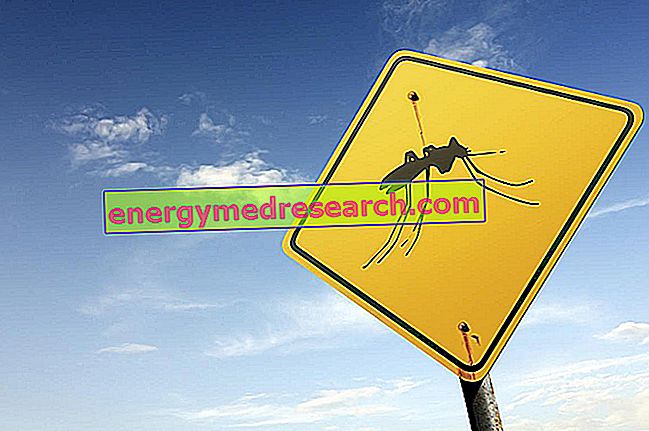Related articles: Sneezing
Definition
Sneezing is a respiratory reflex act, which consists of a violent emission of air from the lungs. It is induced by the activation of nervous sensors that are found in the nose or in the neighboring areas (eg conjunctiva). In fact, inside the nasal cavities there are sensory fibers of the trigeminal nerve; if stimulated by foreign particles, these fibers are activated and transmit their impulses to the brain, which in turn triggers an automatic reflex: the lungs store a considerable volume of air with a deep inspiration, while the contraction of the muscles of the thorax, pharynx and larynx; for a moment the airways become blocked and the heart rate increases; when the air pressure in the lungs becomes too high, the muscles relax quickly and the airways open. The air is thus pushed forcefully out of the lungs and there is a sneeze.
In addition to the air mass, the sneezes also carry the liquids and corpuscles contained in the nasal passages outside, propagating a sort of aerosol consisting of droplets of mucus. Thus, sneezing is a defense mechanism to eliminate pathogens or small foreign bodies, such as dust or pollen, as quickly as possible.
Usually, sneezing is related to a state of inflammation of the nasal mucosa (a condition that is typically found in the cold). However, you can also sneeze due to an allergic reaction or by inhaling dust, pepper, ammonia and other irritants. Furthermore, consecutive sneezing can occur due to exposure of the eyes, especially if inflamed, to an intense light source, such as the sun.
Possible Causes * of Sneezing
- Respiratory allergies
- croup
- Influence
- Nasal polyposis
- Cold
- Rhinitis
- Allergic rhinitis
- Parainfluenza syndromes
- Sinusitis



